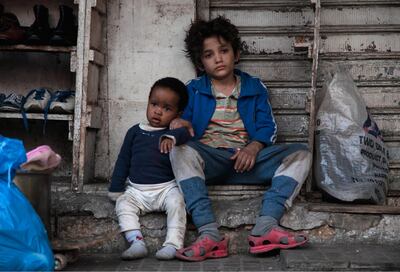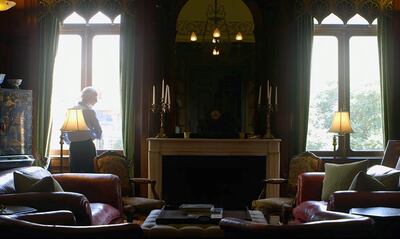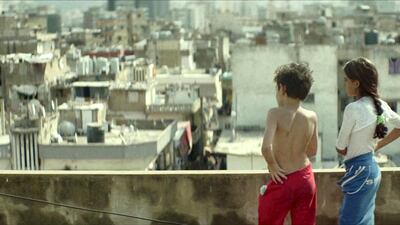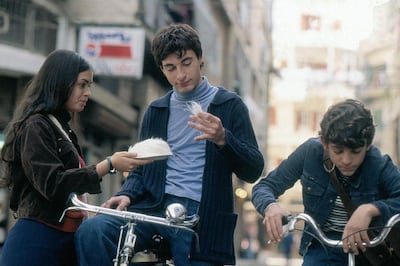The world watched in horror as a massive explosion rocked Beirut last week.
Videos of wrecked homes, of people picking shards of glass from their skin, and of animals scurrying to safety began circulating almost immediately after the blast. Then came reports of those killed. The death toll has passed the 200 mark, and Prime Minister Hassan Diab has tendered the resignation of his government amid mounting public anger and protests.
The explosion on Tuesday, August 4, was the final affront for many in the Lebanese capital, as the country is already enduring an economic hardship due to years of endemic corruption in the government.
If you’ve been following the news, and are eager to know more about Beirut, films can be a great way to get a glimpse of what life in the city is like. Here are six films that paint a picture of Beirut:
1. ‘West Beirut’ (1998)
A coming-of-age story set in the early years of the civil war. Directed by Ziad Doueiri, the film tells the story of Tarek, a goofy teenager who makes Super 8 films. As war breaks out following the tragic bus massacre of 1975, Tarek finds the city divided in two: a Muslim west, and Christian east. His home on one side and his school on the other.
At first, for Tarek and his friend, Omar, the war turns Beirut into a playground. School has been closed, and getting from west to east, and back, is a game. However, as tensions start to rise – both within Tarek's household and out on the streets – the war inevitably turns from a lark to a tragedy.
The film received a number of awards upon its 1998 release, including the Francois Chalais Award at the Cannes Film Festival and the International Critics' Award at the Toronto International Film Festival.
2. ‘A Perfect Day’ (2005)
If West Beirut shows how the civil war first revealed its ugly face, A Perfect Day shows its dreadful and lingering effects.
Directed by Joana Hadjithomas and Khalil Joreige, the film follows a day in the life of Malek, a young man who suffers from sleep disorders and is obsessed with thoughts of his ex-girlfriend. The day is also significant for his mother, who struggles with a court ruling that declares her husband – who was kidnapped more than 15 years ago during the civil war – officially a dead man.
The film won the Don Quixote Award at the 2005 Locarno International Film Festival and was nominated for the Jury Award at the Tribeca Film Festival.
3. ‘Beirut, I Love You (I Love You Not)’ (2009)
A short film by Mounia Akl and Cyril Aris, that manages, in 10 minutes, to offer a glimpse of the paradoxical reality of life in Beirut.
Set to the music of Mashrou’ Leila, the film follows the characters Yasmine and Tarek as they journey through Beirut’s traffic jams, its cafes and its beaches, offering a glimpse of the city and its people.
4. 'Waves ‘98' (2015)
A short animation by Ely Dagher, Waves '98 can be seen as a reflection of the filmmaker's relationship to his hometown since he left for Brussels.
The film follows Omar, a high school student living in northern Beirut. Disillusioned with his life in the suburbs, Omar journeys into the depths of the city, discovering a world that is so close yet so isolated from his reality that he eventually finds himself struggling to keep his attachments and his sense of home.
The film won the Short Film Palme d’Or at the 2015 Cannes Film Festival.
5. ‘Capernaum’ (2018)
Nadine Labaki’s Oscar-nominated drama is the highest-grossing Arabic film of all time, and for good reason. The film revolves around Zain El Hajj, a 12-year-old boy from the slums of Beirut who decides to sue his parents for giving birth to him.

The film, shot in a raw realistic style, shines a light on the darker side of Beirut, revealing its poverty-stricken neighbourhoods and its forgotten children.
"This film to me felt like a duty," Labaki told The National last year. "It wasn't even a choice."
The film has been given dozens of awards and nominations, including the Jury Prize at the 2018 Cannes Film Festival.
6. 'Beirut, la vie en rose' (2019)

This documentary by Spanish cinematographer Eric Motjer, rather than focusing on the hardships of the country, focuses on the Christian elite that the filmmaker said “continue to enjoy their wealthy lives as they have done for generations”.
"We wanted to focus on the Christian elite because, apart from the fact that they let us film them, they represent what Lebanon was, a time that will probably never come back," Motjer said during an interview with The National last year.
“They have this nostalgia for the past and this way of life because they lost power, they lost their status in a way.”



